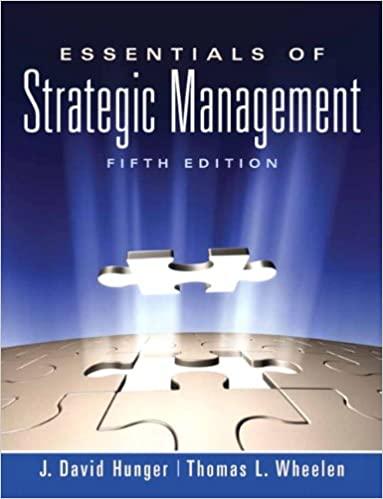Question
Project-as-Practice: In Search of Project Management Research That Matters Tomas Blomquist, Ume University, Sweden Markus Hllgren, Ume University, Sweden Andreas Nilsson, Ume University, Sweden Anders
Project-as-Practice: In Search of Project Management Research That Matters Tomas Blomquist, Ume University, Sweden Markus Hllgren, Ume University, Sweden Andreas Nilsson, Ume University, Sweden Anders Sderholm, Mid Sweden University, Sweden
Case Study report Outline Before you begin writing, follow these guidelines to help you prepare and understand the case study/Journal: I. Read and Examine the Case/Journal Thoroughly a. Take notes, highlight relevant facts, underline key problems. II. Focus Your Analysis a. Identify two to five key points/problems. b. Why do they exist? c. How do they impact the industry/organization? d. Who is responsible for them? III. Uncover Possible Solutions/Changes Needed a. Review course readings, discussions, outside research, your experience. Drafting the Report Once you have gathered the necessary information, a draft of your case/journal report should include these general sections, but these may differ depending on your assignment directions or your specific case study/journal: 1. Introduction o Identify the key points in the case study/journal. o Formulate and include a thesis statement, summarizing the outcome of your analysis in 1-2 sentences. o Demonstrate that you have researched the main topics/points in this case study/journal. 2. Body o Outline the various pieces of the case study/journal that you have learned. o Evaluate these pieces by discussing the effectiveness in business practices mentioned in the case study/journal. o State the significance of learning this topic and give example from the case study/journal. 3. Proposed Solution/Changes (for case studies) o Discuss specific and realistic solution(s) or changes mentioned in the case. o Consider strong supporting evidence, pros, and cons. Is this study/solution realistic? o Explain why this solution was chosen. o Support this solution with solid evidence, such as: Concepts from class (text readings, discussions, lectures) Outside research Personal experience (anecdotes) 4. Conclusion and Recommendations o Rephrase the main points discussed in introduction. o Determine and discuss specific strategies for accomplishing the proposed solution. o If applicable, recommend further action to resolve some of the issues. o What should be done and who should do it
Step by Step Solution
There are 3 Steps involved in it
Step: 1

Get Instant Access to Expert-Tailored Solutions
See step-by-step solutions with expert insights and AI powered tools for academic success
Step: 2

Step: 3

Ace Your Homework with AI
Get the answers you need in no time with our AI-driven, step-by-step assistance
Get Started


